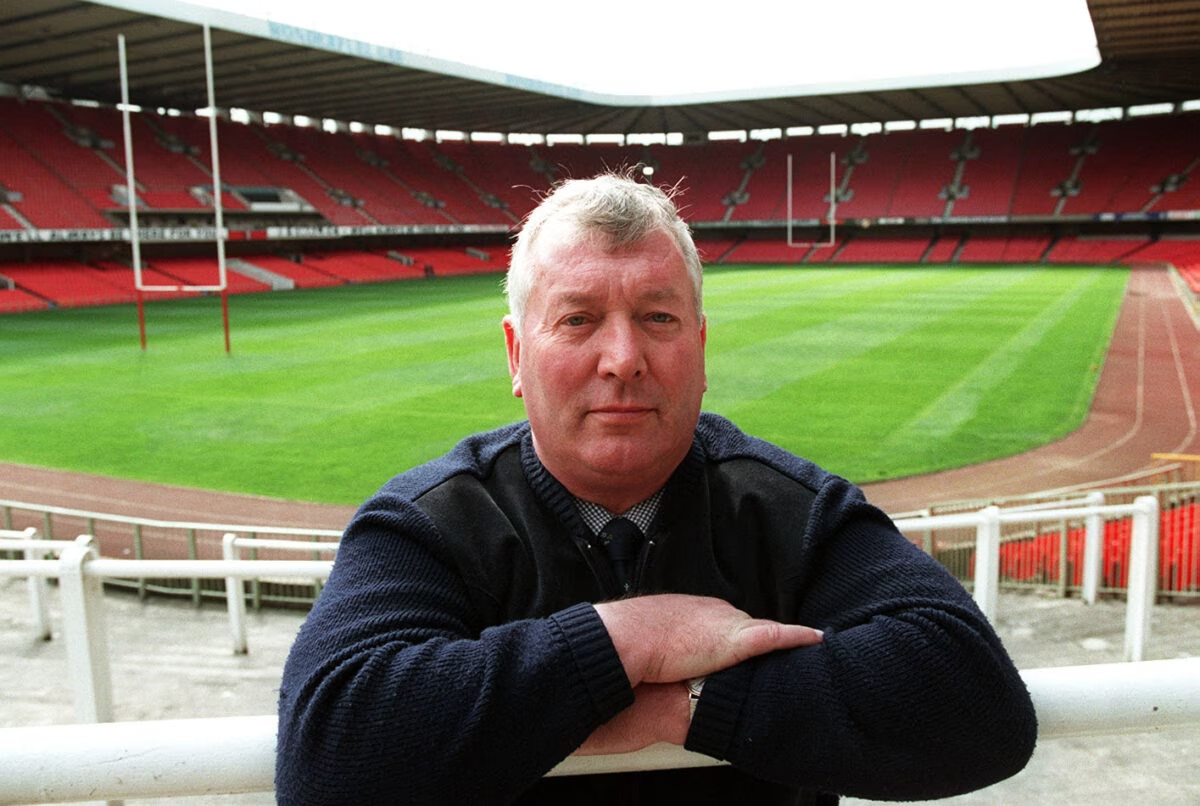Wales and British & Irish Lions legend John Taylor believes rugby should mark the outstanding career of John Dawes by erecting a statue of him at his old stamping ground at Old Deer Park. It was at the home of London Welsh that Dawes, who died at the age of 80 last Friday, transformed British rugby […]
Wales and British & Irish Lions legend John Taylor believes rugby should mark the outstanding career of John Dawes by erecting a statue of him at his old stamping ground at Old Deer Park.
It was at the home of London Welsh that Dawes, who died at the age of 80 last Friday, transformed British rugby with his attacking philosophy and masterminded the plan that helped to carry Wales to a Grand Slam and the Lions to their groundbreaking series win in New Zealand in 1971.
He turned London Welsh into the best team in the UK, first as captain and then as coach, and went on to coach Wales to four successive Triple Crowns and two Grand Slams.
Dawes also coached the Lions in New Zealand in 1977, when they beat every provincial team, but won only one of the four Tests.
His death comes a few months short of the 50th anniversary of the Lions’ historic victory in New Zealand.
Taylor, who played alongside Dawes for club, country and the Lions in 1971, believes now is the perfect time to honour both Dawes and that unique achievement.
“John transformed London Welsh and that paved the way for what happened with both Wales and the Lions. I don’t think it is too far-fetched to suggest he was one of the founding fathers of modern rugby,” said Taylor.
“What he preached, and we put into practice, at London Welsh then permeated the rest of the game in the UK with the Welsh national side he captained leading the way.
“You only have to look at the results of the international games in the early part of the Sixties and compare them to the latter part and the Seventies to see what sort of impact he had.”

John Taylor
John transformed London Welsh and that paved the way for what happened with both Wales and the Lions. I don’t think it is too far-fetched to suggest he was one of the founding fathers of modern rugby
Taylor added: “When he arrived at Old Deer Park we were a small side that wasn’t very fit and wasn’t very competitive. He changed all that with his policy of moving the ball and attacking from anywhere.
“His philosophy was radical, but game changing for not only London Welsh, but the rest of British rugby.
“When he joined forces, as captain of the 1971 Lions, with the coach Carwyn James it was the perfect rugby storm.
“The team achieved what no other side had done before from the UK and Ireland and hasn’t managed silence. That needs suitable recognition and I can think of no better way to do that than to erect a statue of John Dawes at the club that he served as player, captain, coach and president.”
Rugby statues are few and far between.
Sir Gareth Edwards was cast in bronze in a Cardiff shopping mall in the Nineties, Ray Gravell guards the entrance to Parc Y Scarlets in Llanelli, and Ken Jones was recognised in his home town of Blaenavon in 2013.
So what price a statue to commemorate the life and achievements of Dawes?
Taylor believes it would satisfy all demands.

John Dawes pictured in his coaching days with Alan Phillips
His philosophy was radical, but game changing for not only London Welsh, but the rest of British rugby. When he joined forces, as captain of the 1971 Lions, with the coach Carwyn James it was the perfect rugby storm.
“Not only would it (a statue) recognise his great achievements as captain of Wales and the Lions in 1971, but it would also be an inspiration to future generations of players,” added Taylor.
“His philosophy brought out the best in players around him – JPR Williams and Gerald Davies for club and country and Mike Gibson with the Lions.
“If the youngsters of today want to know where their heroes learned how to play with such skill and freedom, then they should know it all began at Old Deer Park with John Dawes back in the Sixties.
“We are famous for underselling the great stars of the past in this country. Here is an opportunity to change that and to champion one of the giant figures of post-war British rugby.”
Not only would it (a statue) recognise his great achievements as captain of Wales and the Lions in 1971, but it would also be an inspiration to future generations of players

